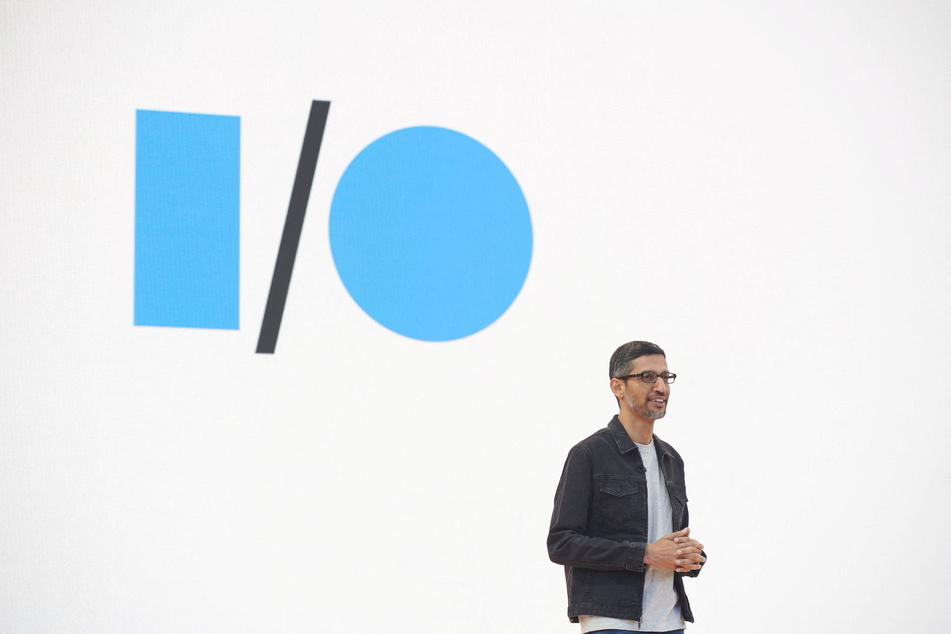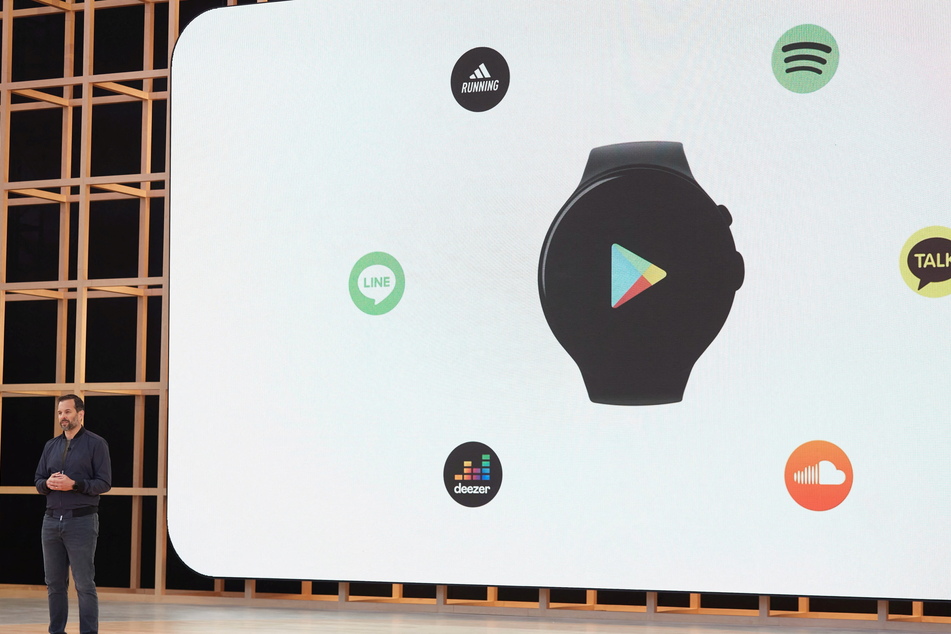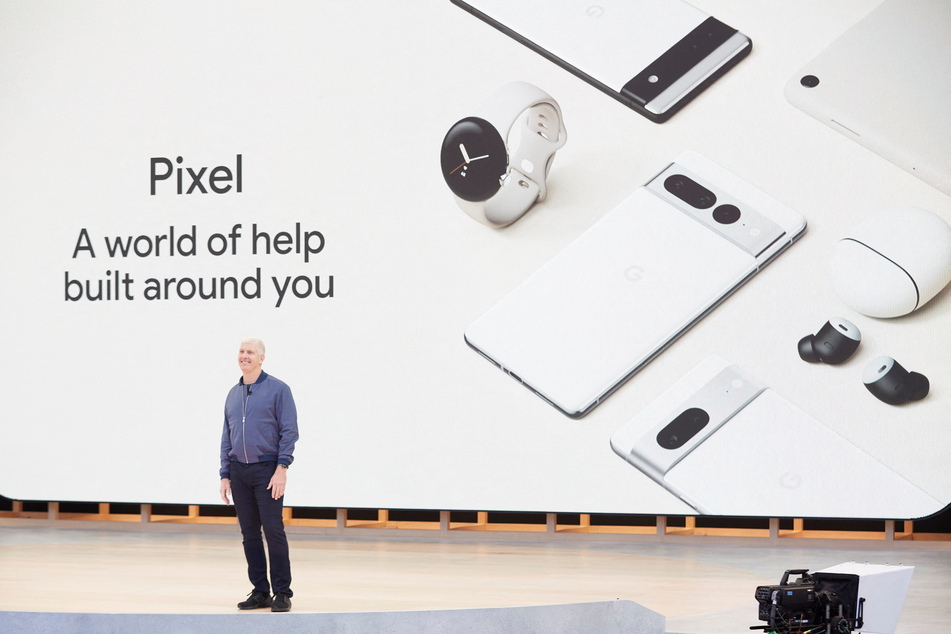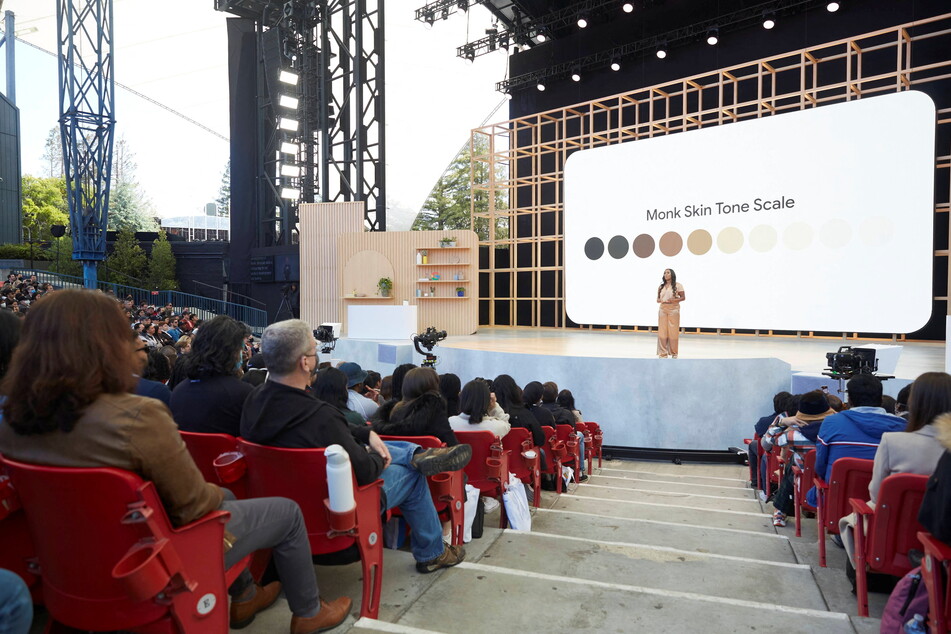Google I/O 2022: The biggest changes and the best new gadgets
No more "Hey Google". The ability to talk to Google's smart assistant without having to use those two words first is among the latest ways the tech giant says it wants to use AI to make everyday tasks simpler.

At the annual Google I/O developer conference, the company also showed how software can automatically display useful information in the camera image on your smartphone screen.
Google gave everyone a glimpse into the future with a prototype of glasses that can display real-time translations from other languages in the user's field of vision during a conversation.
The company that started out with a simple search function now says you will soon be able to search for information by simply pointing your phone's camera at something.
At the I/O summit on Wednesday, Google showed how a photo of a meal was enough to find it at well-rated restaurants nearby. You can also point the phone's camera at a shelf of snacks to see which ones are healthiest.
Eye contact to wake your voice assistant

In most cases, if you want to play some music or set an alarm with your voice assistant, you'll have to use the wake word like "Hey Siri" or "Alexa."
But on Google's in-house device Nest Hub - a networked speaker with display and camera - you will be able to do without the "Hey Google."
Google says the device now knows when you're looking at it, and when this happens, it listens out to what you're saying.
A quick glance is not taken into account by the software when analyzing the camera images, Google says, so there shouldn't be any accidental activation.
Google's answer to the Apple Watch

In an attempt to end Apple's dominance in the smartwatch business, Google has announced its answer to the Apple Watch, a round-faced smartwatch designed to work seamlessly with Android devices, like Apple's watch does with iPhones.
The long-rumored Pixel Watch is set to be launched in the third quarter of 2022. Google isn't giving us a price tag yet, but says the watch will be "premium."
Although there have been countless Android smartwatches in recent years, the Apple Watch has been the gold standard of the smartphone business since its launch in 2015, remaining ahead of the rest in terms of popularity and ease of use.
As with the Apple Watch, fitness is to be a central focus of the Pixel Watch. Google bought fitness band specialist Fitbit in 2019, whose technology will be used in the Pixel Watch. Technology under the Fitbit brand will also continue to be available.
The Pixel Watch can also be used to make contactless payments, just like the Apple Watch. One special feature is that the Pixel Watch can navigate without a paired smartphone, for example when out walking or riding a bicycle.
The company is also expanding its Pixel product range along Apple's device offerings - an improved Pro model of the Pixel Buds earphones are in the works, as well as a new Pixel tablet next year.
Google, as developer of the Android operating system, has so far held back somewhat in the hardware business. Now, device chief Osterloh highlighted the benefits of a seamless interplay of devices from a single source.
Google's subtitles for real life

As part of its long-term vision, Google is working on smart glasses that can automatically display translations in the wearer's field of vision. Showing off what Google called "subtitles for real life," a prototype of the device was seen at I/O, albeit only in a video.
There was no information on technical details such as battery life. From the outside, however, the device looked like a conventional pair of horn-rimmed glasses, except for the slightly wider temples.
Tech with which digital content is superimposed on real environments – on displays or directly in the user's field of vision – is referred to as augmented reality (AR). It is already known that Apple and Facebook, among others, are working on AR glasses.
Google was already a pioneer in computer glasses in 2012 with Google Glass, which had a small display and a camera. Besides technical flaws, however, the device was plagued by data protection concerns.
Cover photo: REUTERS